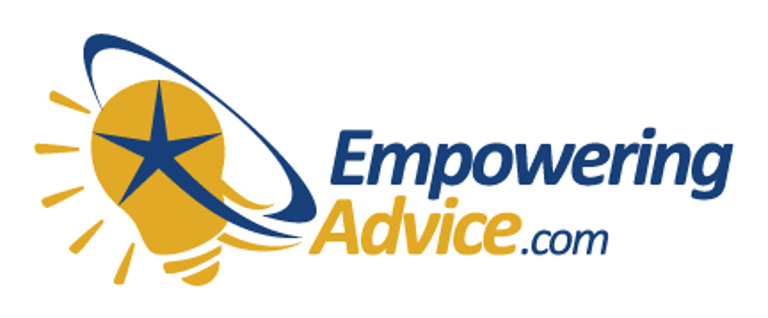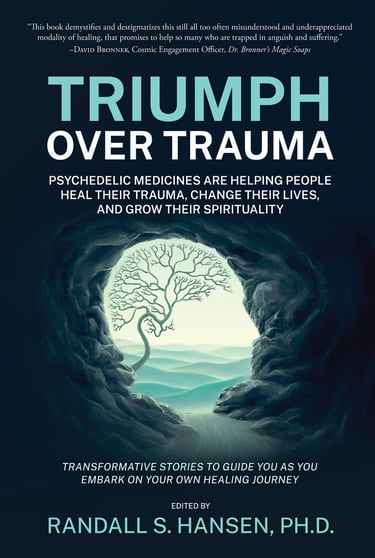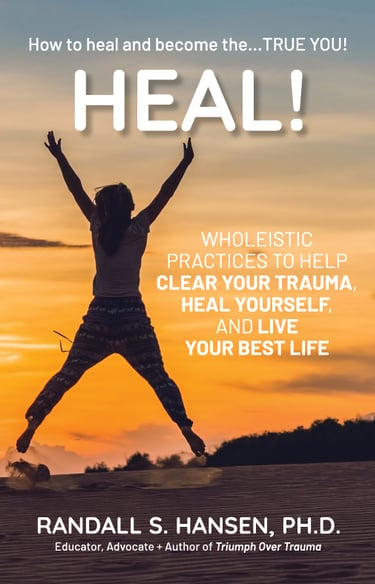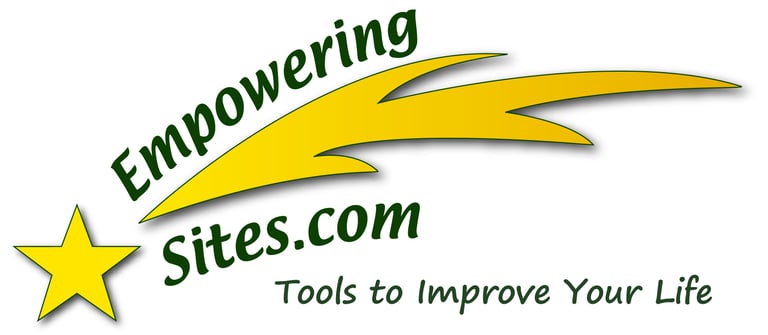Are You a Psychedelic Skeptic?
Are you a psychedelic skeptic? Regardless of your answer to that question, I welcome you to this discussion. If you are a skeptic -- or know one -- please continue reading. If you're skeptical about the information presented here, please contact me and share your concerns. If you know a psychedelic skeptic, please forward them this article.
If you're open to the truth -- and I hope you are -- this article succinctly covers the LONG and TRUE history of psychedelic substances and their strong potential to help many find true healing. It will also cover a short bit about each major psychedelic. (There are many "novel" compounds that also produce psychedelic/hallucinogenic effects, but for the sake of brevity, this article will only focus on the major/common psychedelics.)
A Brief TRUE History of Psychedelics
There's no doubt, no arguments, that psychedelic substances -- mainly fungi and plants -- have been used time immemorial... as far back in the history of humans that we can go. Psychedelics were used by so-called medicine men and women to help heal their communities, as well as lead spiritual quests and transformational experiences.
Anecdotally, we have a massive longitudinal study of human use of psychedelics -- thousands of years of psychedelic substance use.
That said, as psychedelics began to enter the Western World, researchers started examining their effects. We know that by the mid-1960s, there were more than 2,000 published articles involving more than 40,000 patients that noted positive effects with various psychedelics.
During this same period, six international conferences, more than 1,000 scientific papers, and several books were written about the use of LSD in psychiatry. Much of this research was lost due to the "war on drugs."
Why the War on Drugs? Completely a political decision, with no regard for the research nor the healing that people were receiving. I still have a hard time grasping how a plant, cactus, or mushroom could be made illegal, but that's what happened.
President Richard Nixon and the U.S. Congress -- fearful of the growing anti-war movement about the U.S. presence in Vietnam -- decided first that LSD was a cultural threat to American values, and in 1966 passed the Drug Abuse Control Amendment (which banned the manufacturing or sale of LSD and similar hallucinogens). Worse, four years later, Congress passed the Comprehensive Drug Abuse Prevention and Control Act of 1970, listing all traditional psychedelics as Schedule I drugs, meaning that they have "no medicinal value."
Shortly thereafter, the United Nations also established a worldwide ban on psychedelics -- and ALL psychedelic research evaporated... and disappeared from existence.
Furthermore, for decades, we have been told repeatedly by the government that these psychedelic and plant medicines are harmful, addictive, and with no therapeutic use... all false claims.
Regarding the War on Drugs, John Ehrlichman, President Nixon's trusted legal counsel and Assistant to the President for Domestic Affairs, many decades later stated: "Did we know we were lying about the drugs? Of course we did."
Finally, today, we are seeing a softening of that hard government stance, thanks to a wide fabric of activists and veterans. Several states and communities across the U.S. have made changes in local laws, with many others looking at ways to either decriminalize or create a therapy-model for the use of these substances.
Even at the national level, both Congress and the Department of Veterans Affairs are slowly and carefully examining the possible use of these psychedelics as medicines for healing.
Psychedelics as Medicine
Regardless of the lies from the government, there is unquestionable evidence that psychedelics are medicines when used intentionally. There is no arguing the benefits of psychedelic substances for helping many people find healing from trauma. (Like all medicines, there are certain health conditions that are contraindicated for/with psychedelics.)
Many psychedelic medicines are being tested in a variety of drug trials, with both MDMA and psilocybin the closest to FDA approval. (MDMA perhaps in 2024, with psilocybin a few years later.)
Current research with psychedelics (which is happening at major research universities around the world, including Johns Hopkins, Yale, Washington University, Stanford in the U.S., as well in Canada, England, Switzerland, Egypt, France, and South Korea) is showing amazing -- truly amazing -- results in several areas of mental and physical health.
In terms of the medical conditions being studied with psychedelic therapies, here's the list (from most studies to least):
Depression
Treatment-resistant Depression
Post-Traumatic Stress
Addiction
Anxiety
Alcohol Use Disorder
Traumatic Brain Injury
Pain
Palliative Care/Cancer
Headache Disorders
Eating Disorders
Obsessive-Compulsive Disorder
Postpartum Depression
Opioid Use Disorders
Bipolar Disorder
Fibromyalgia
Autism
Major Psychedelic Medicines
Here's a bit of information on each of the seven major psychedelic medicines. Each of these medicines have different effects, different protocols, and different lengths of experience.
Psilocybin: a naturally-occurring psychedelic produced by more than 200 species of fungi, and have been used for as many as 10,000 years -- maybe even longer. These so-called Magic Mushroom species can be found across the globe.
LSD: a classical hallucinogen that was first produced in 1938 from a chemical (lysergic acid) derived from ergot, a fungus that infects grain, by Swiss chemist Albert Hoffman. It is one of the most well-known psychedelic substances, used extensively in therapy in the 1960s. It is considered one of the "least harmful drugs" -- second only to psilocybin.
Mescaline: a naturally-occurring, gentle, and heart-opening psychedelic found in certain cacti (best known are the peyote and San Pedro/Huachuma), and known for its hallucinogenic effects, which are comparable to those of LSD and psilocybin.
MDMA: First synthesized by Merck in 1912, it produces a heart-opening, euphoric feeling (because it is an entactogen). Other benefits include increased energy level, improved mood, sharper mental clarity, and reduced anxiety. Note: MDMA is not the same as the street drugs Ecstasy or Molly, which contain contaminants and added fillers.
Ketamine: the only psychedelic medicine that is Schedule III, and legally used in clinics across the U.S. It is a NMDA-based dissociative and dates back to 1962 when it was first synthesized by American scientist Calvin Stevens; it's a medication primarily used for induction and maintenance of anesthesia, which is why it is not Schedule I, as with the other psychedelics.
Ayahuasca: a psychedelic medicine that is known as the "vine of the soul." It is prepared from the combination of the Ayahuasca vine and the leaves of the Chacruna shrub -- both of which grow naturally in the South American Amazon. It is the DMT that makes the brew psychedelic. (DMT is a potent psychedelic molecule found in many plants and animals -- including humans.)
Ibogaine: a naturally-occurring psychoactive substance used for medicinal and ritual purposes in African spiritual traditions of the Bwiti religion in Gabon. It was first promoted as having anti-addictive properties in 1962 by Howard Lotsof, who was a heroin addict himself.
Final Thoughts About the Value of Psychedelic Medicines
Still skeptical? I hope not, but if you are, please send me an email with your questions at ran (at) triumphovertraumabook.com.
The most important takeaway from this article should be that while these psychedelic medicines show enormous potential for upending our knowledge of mental health therapies and transforming and healing our lives, we must be diligent in conducting our own research before diving into the many potential benefits of psychedelics -- and please note that I am not endorsing any illegal activities, as these medicines are being used in clinical trials and are legal in other parts of the world. That said, I am promoting HEALING.
These medicines are not a cure-all, nor are they suitable for everyone. The medicines do work independently in the brain, building new neural pathways and connections, but the emotional healing and transformation comes after the medicine -- when people do the work of integrating the insights and healing into everyday life.
These medicines are also extremely safe. Compared to alochol (500,000+ annual deaths) or tobacco (100,000+ deaths annually), psychedelics (fewer than 20 deaths annually) are some of the safest substances. In fact, more than 30,000 people die each year from FDA-approved prescribed drugs.
The key thing to remember is that these medicines are tools for your overall healing, health, and well-being. They can help you overcome trauma that you had no previous awareness existed -- showing you what needs healing, what needs your attention, how to live a better and more spiritual life. But, you need to be intentional in your work... you need to set clear intentions, surrender to the experience, and integrate any lessons learned.
It's long overdue that we allow -- and promote -- these psychedelic medicines to be a key modality in helping us find true healing (and not just symptom control); doing so will go far in helping us become whole again.
Looking for more information on trauma? Please read this companion article: What is Trauma... and How Psychedelic Medicines Can Help.
Finally, to learn more about what these psychedelic medicines are and how or why they might be of use to you for your healing -- or the healing of a loved one -- please find numerous articles and tools in this section of my book's website. (The book, Triumph Over Trauma, is also a good resource!)
For Learning More About Psychedelics
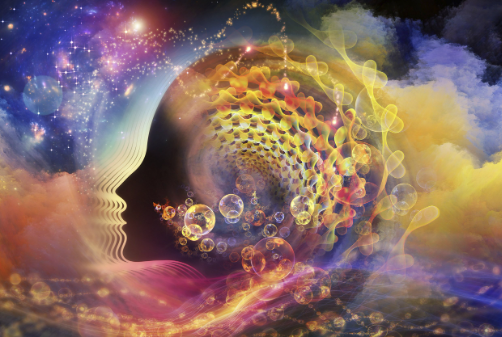

Dr. Randall Hansen is an advocate, educator, mentor, ethicist, and thought-leader... helping the world heal from past trauma. He is founder and CEO of EmpoweringSites.com, a network of empowering and transformative Websites, including EmpoweringAdvice.com.
He is the author of the groundbreaking Triumph Over Trauma: Psychedelic Medicines are Helping People Heal Their Trauma, Change Their Lives, and Grow Their Spirituality and the well-received HEAL! Wholeistic Practices to Help Clear Your Trauma, Heal Yourself, and Live Your Best Life.
Dr. Hansen's focus and advocacy center around true healing ... healing that results in being able to live an authentic life filled with peace, joy, love. Learn more by visiting his personal Website, RandallSHansen.com. You can also check out Dr. Randall Hansen on LinkedIn.
